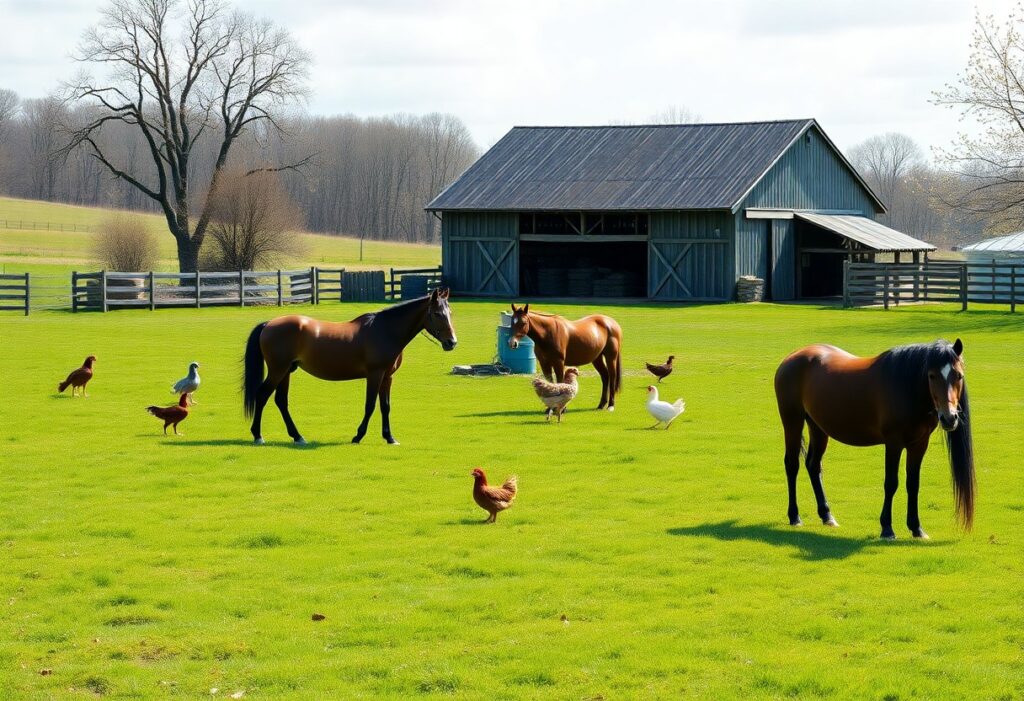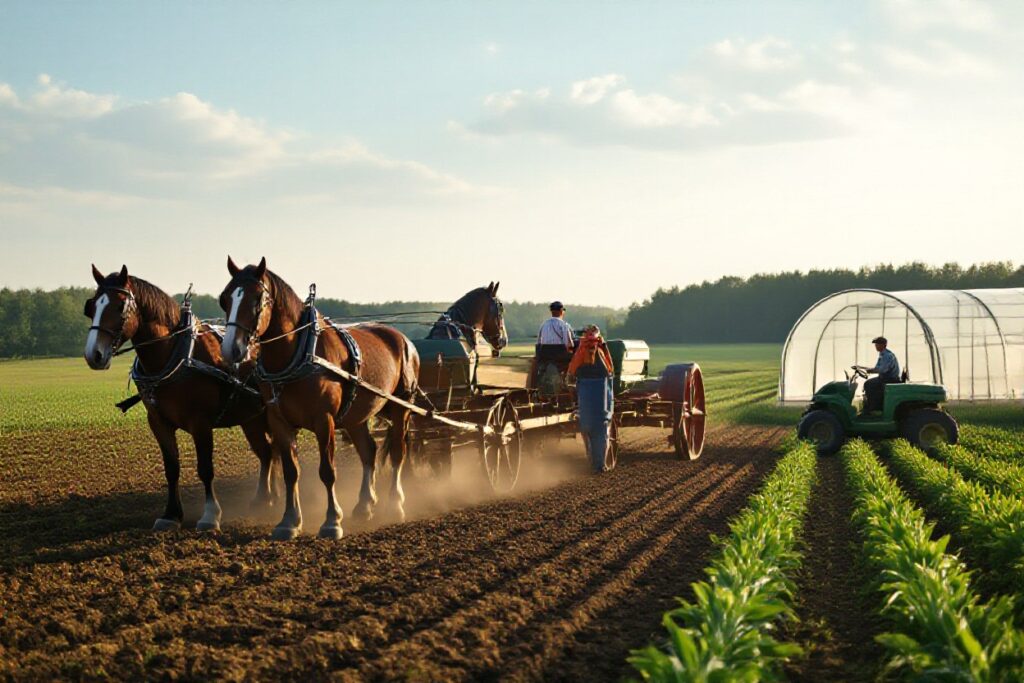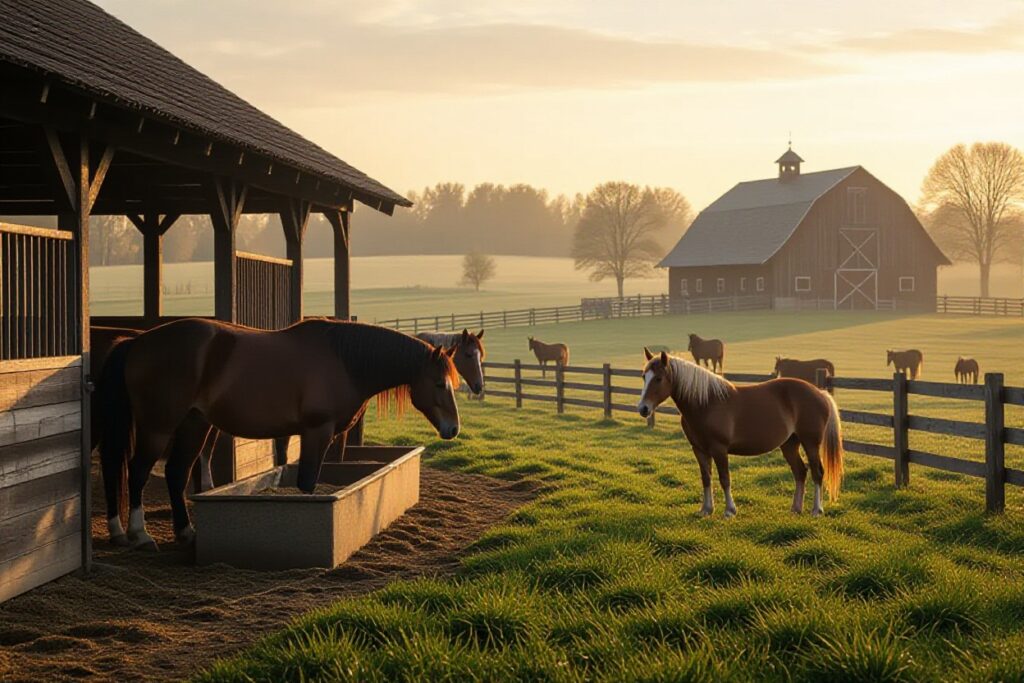Over time, you will find that maintaining the happiness of your horses and farm animals is important for their health and productivity. By following certain best practices, you can create a positive environment for your animals throughout the year.
Firstly, ensuring that your animals have a comfortable and safe habitat is paramount. Provide spacious enclosures that allow them to move freely. Consider using appropriate bedding materials, such as straw or shavings, and keep their living areas clean to avoid health issues. Regularly check for sharp objects or hazards in their surrounding area.
Next, pay attention to your animals’ nutrition. Depending on the species, offer a balanced diet comprising of high-quality hay, grains, and specialized feeds. Always consult a veterinarian for guidance tailored to your animals’ specific needs. Fresh, clean water should be available at all times, making sure it is not frozen during colder months.
Alongside nutrition, maintain a consistent feeding schedule. This routine will help your animals feel secure and content, reducing stress. In addition, provide enrichment activities, such as toys or obstacles, to stimulate their minds and prevent boredom.
Regular health check-ups are fundamental to keeping your animals happy. Schedule routine visits with a veterinarian for vaccinations and health assessments. You should also monitor their behavior and physical appearance daily; any changes can indicate underlying issues that need attention.
Social interaction is vital for many farm animals. Ensure that your horses and other farm animals have companionship. Whether it’s another animal or your own regular presence, this interaction can significantly enhance their well-being.
Seasonal changes bring different challenges. In summer, provide shade and plenty of water to combat heat stress. In winter, ensure there’s adequate shelter from wind and rain, along with extra bedding to keep them warm. Adjust your animals’ nutrition according to seasonal needs, as their requirements may vary.
For horses, regular exercise is important. Create a safe area for them to run and play. Consider taking them for rides or walks to avoid stagnation and to keep them fit. Socializing with other horses can also enrich their lives.
Lastly, keep a close eye on your animals’ mental health. Engage with them daily, as spending quality time helps build trust. Training sessions can be productive not only for discipline but also for bonding. Utilize positive reinforcement techniques to create a supportive environment.
By adhering to these best practices, you will foster a satisfying and enriching life for your horses and farm animals all year round. A happy animal is a healthy animal, leading to a thriving farm and a rewarding experience for you as well.











